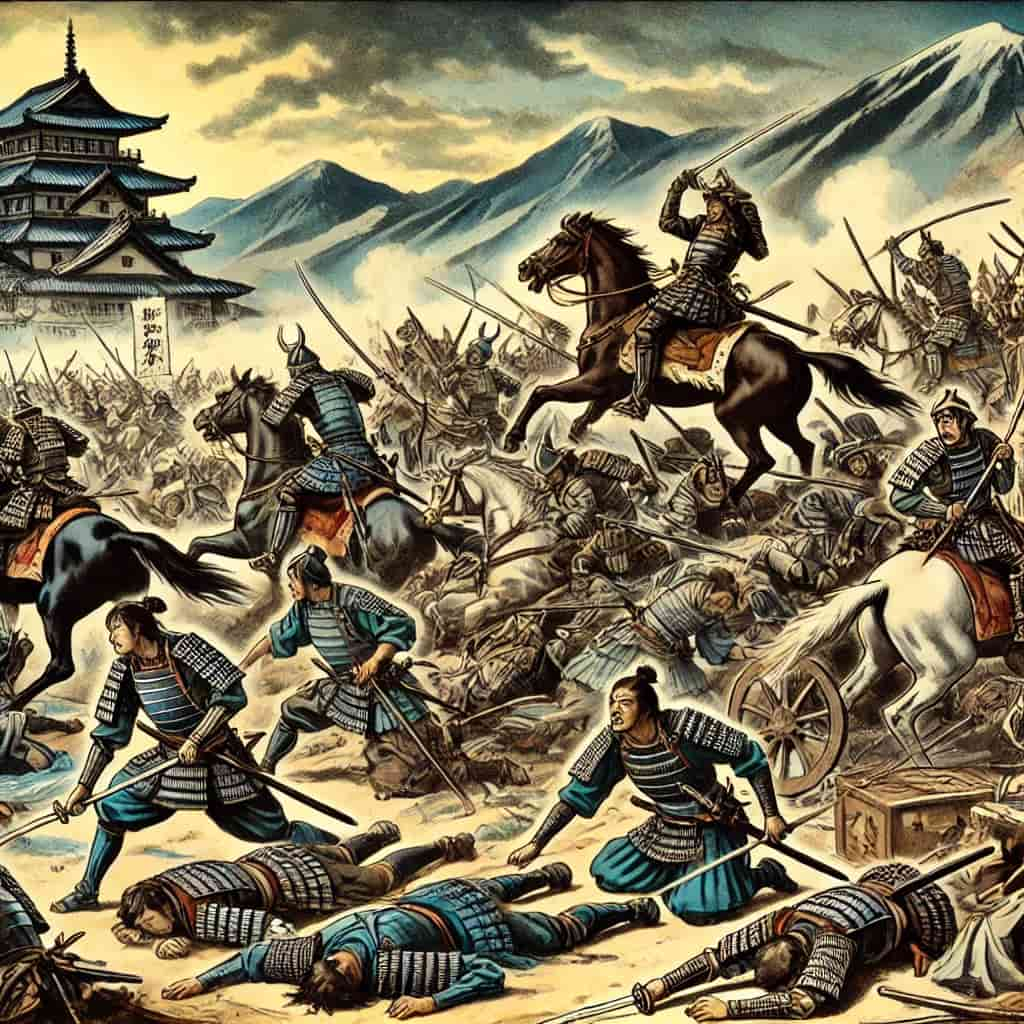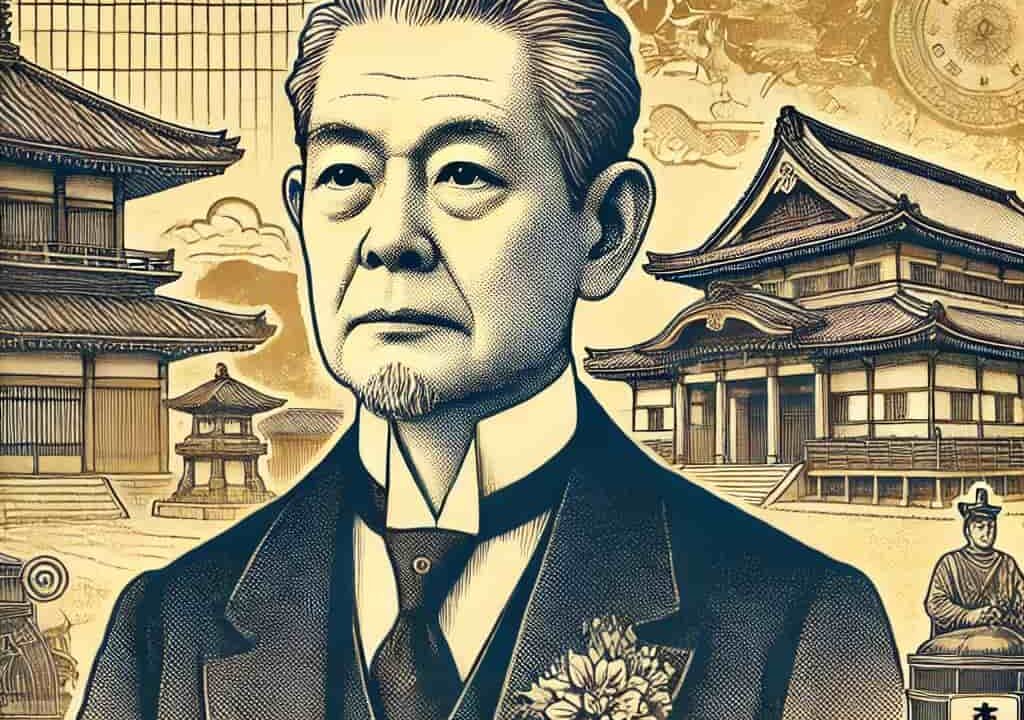The Assassination of Hirobumi Ito - A Turning Point in History
The theme of this English language resource is "learning casual English through real events."
The theme of this English resource is "Learn casual English through real events."
The Background of Hirobumi Ito
Alright, let's set the scene: it's 1909, and Hirobumi Ito is one of the most influential figures in Japan. As the first Prime Minister of Japan, he played a big role in modernizing the country and strengthening its presence in East Asia. But not everyone was a fan of his policies, especially those in Korea, which was under increasing Japanese influence at the time. fed up with Japan's tightening Ito was seen by many as the face of this oppression, and that set the stage for what was to come.
Q1: What are your thoughts on this part of the article?
Sample AnswerIt's interesting to see how Ito was such a significant figure in Japan's modernization. 's clear that his actions also caused a lot of tension, especially in Korea.
Q2: Please summarize this article.
Sample Answer: "This part of the article talks about Hirobumi Ito's role in Japan's history and the increasing resentment from Korea due to Japan's influence, which created a tense environment This part of the article talks about Hirobumi Ito's role in Japan's history and the increasing resentment from Korea due to Japan's influence, which created a tense environment.
Now, let's talk using idioms.
Let the students choose one favorite idiom and make an example sentence.
Idiom used: "Fed up to the teeth"
Explanation: This idiom means being extremely annoyed or angry about something, to the point where one cannot tolerate it any longer.
Example Sentence: "After months of overtime work without any extra pay, the employees were fed up to the teeth and decided to demand fair compensation. ."
The Background of Hirobumi Ito
Now, let us recall the year 1909. Hirobumi Ito was one of the most influential figures in Japan at the time. As Japan's first prime minister, he played a major role in modernizing the country and strengthening its presence in East Asia. However, many people did not like his policies, especially in Korea, where Japanese influence was growing at the time. People were fed up with the Japanese clampdown, and this created a lot of discontent. Ito was seen by many as a symbol of oppression, which set the stage for later events.
Q1: What do you think about this part of the article?
sample answer: "It is interesting to note that Ito was a very important figure in the modernization of Japan. But it is also clear that his actions caused a lot of tension, especially in Korea."
Q2: Please summarize this article.
sample answer: "This part explains Hirobumi Ito's role in Japanese history and how the growing discontent caused by Japanese influence in Korea created tensions."
Idiom used: "Fed up to the teeth" Japanese translation: "Fed up to the teeth" means that you are very irritated or angry about something and cannot take it anymore.
Japanese translation: "After months of overtime and no additional pay, the employees ran out of patience and decided to ask for fair compensation."
2. the Assassination by An Jung-geun

On October 26, 1909, Hirobumi Ito was in Harbin, Manchuria, when he was assassinated by An Jung-geun, a Korean independence activist. fed up to the teeth It was like he decided to take the bull by the hornsThis act wasn't just about killing a political figure; it symbolized the deep frustration and desire for independence that many Koreans felt at the time. An was arrested immediately, but his actions echoed across East Asia, sparking discussions on both An was arrested immediately, but his actions echoed across East Asia, sparking discussions on both sides about imperialism and freedom.
Q1: What are your thoughts on this part of the article?
Sample AnswerI think An Jung-geun's actions show how desperate people were to resist Japanese control. It's a tragic but powerful symbol of the struggle for independence.
Q2: Please summarize this article.
Sample AnswerIt highlights the frustration and desire for Korean independence. It highlights the frustration and desire for Korean independence.
Now, let's talk using idioms.
Let the students choose one favorite idiom and make an example sentence.
Idiom used: "Take the bull by the horns"
Explanation: This idiom means to confront a difficult situation directly and with courage, without hesitating.
Example Sentence: "She decided to take the bull by the horns and address the issue of unfair treatment in her workplace."
2. the Assassination by An Jung-geun
On October 26, 1909, Hirobumi Ito was in Harbin, Manchuria, when he was assassinated by Korean independence activist Jung-geun Ahn. An was fed up with Japanese imperialism and decided to take action himself. Just like "grabbing the bull by the horns," he boldly took up the challenge, knowing the consequences. This act was more than just killing a political figure; it symbolized the deep dissatisfaction and strong desire for independence felt by many Koreans at the time. An was quickly arrested, but his actions reverberated throughout East Asia, provoking debate on both sides about imperialism and freedom.
Q1: What do you think about this part of the article?
sample answer: "I believe that An Jung-geun's actions represent the desperation of those who resisted Japanese rule. Tragic, but also a powerful symbol of the struggle for independence."
Q2: Please summarize this article.
sample answer: "This part of the book explains the assassination of Ito Hirobumi by An Jung-geun in protest against Japanese imperialism. It underscored his frustration and desire for Korean independence."
Idiom: "Take the bull by the horns" Japanese translation: "Seize the bull by the horns" Description: This idiom means to face a difficult situation with courage and without hesitation.
Japanese translation: "She courageously decided to confront the issue directly about unfair treatment in the workplace."
The Aftermath and Impact

The assassination of Hirobumi Ito was like throwing a match into a powder keg. It heightened tensions between Japan and Korea, and many saw it as a turning point that led to even harsher Japanese control over Korea. It's kind of like when someone stands up against a bully-even if they get punished, people remember their courage. For Korea, this event became a rallying point in their fight for independence, though it would be many For Korea, this event became a rallying point in their fight for independence, though it would be many years before they achieved it.
Q1: What are your thoughts on this part of the article?
Sample Answer: "It's sad how the assassination led to even harsher conditions for Korea, but it also shows the bravery of those who stood up against oppression."
Q2: Please summarize this article.
Sample AnswerAn Jung-geun : "This section explains how the assassination of Ito led to increased tensions and harsher Japanese control over Korea. An Jung-geun became a symbol of resistance for the Korean people.
Now, let's talk using idioms.
Let the students choose one favorite idiom and make an example sentence.
Idiom used: "Throwing a match into a powder keg"
Explanation: This idiom means to do something that could cause a major and sudden outbreak of conflict or trouble, similar to igniting a highly volatile situation.
Example Sentence: "The controversial speech was like throwing a match into a powder keg, sparking protests across the city."
The Aftermath and Impact
The assassination of Hirobumi Ito was like throwing fire into a powder keg. It heightened tensions between Japan and Korea and was seen by many as a turning point that would lead to tighter Japanese control over Korea. Ajun became a symbol of resistance, a hero to some and a criminal to others. It was like standing up to a bully, and even if punished, his courage will be remembered. This event became a rallying point in Korea's struggle for independence, but it took a long time to achieve it.
Q1: What do you think about this part of the article?
sample answer: "It is sad that the assassination made things even more difficult for Korea, but it also shows the courage of those who stood up against oppression."
Q2: Please summarize this article.
sample answer: "This part of the article explains how Ito's assassination heightened tensions and tightened Japanese control over Korea. An Jung-geun became a symbol of resistance for Koreans."
Idiom: "Throwing a match into a powder keg" Explanation: This idiom means an action that ignites a very volatile situation, causing serious and sudden confrontation or trouble. It can be used to describe a serious and sudden confrontation or trouble.
Japanese translation: "Its controversial speech was like throwing fire into a powder keg and sparked protests across the city."






